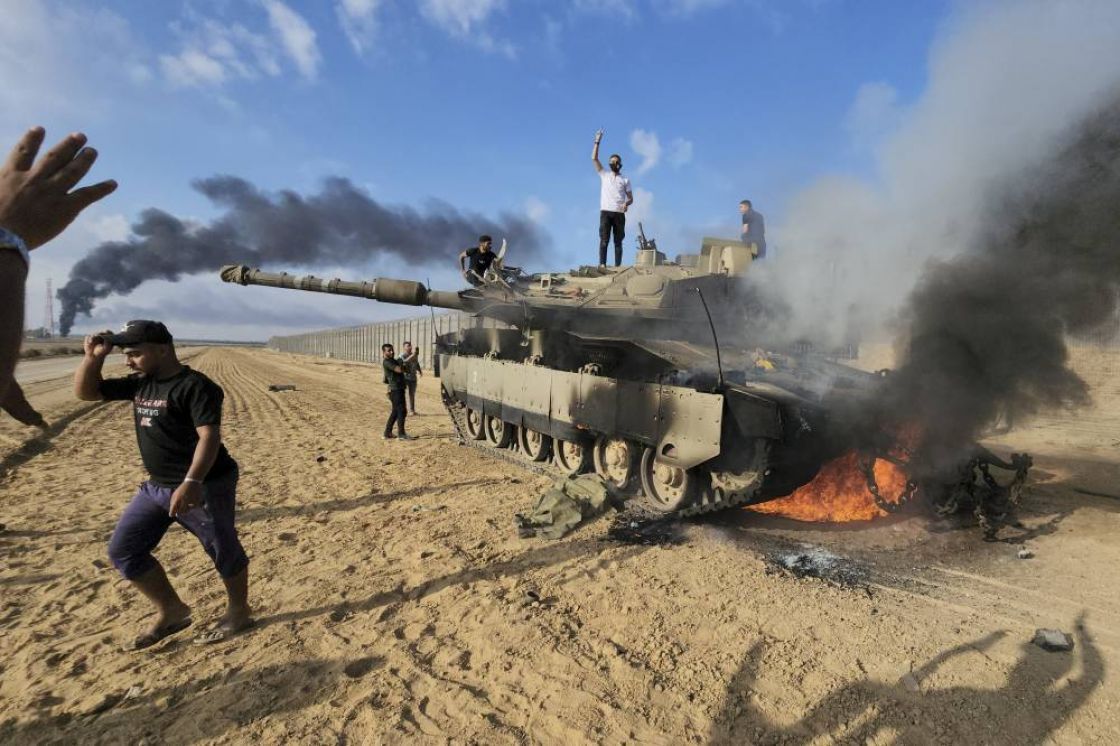- Editorials
- Posted
Kassioun Editorial 1147: Who Are Enemies of the “Flood” and How Do They Show Their Hostility?
Forces hostile to the “al-Aqsa Flood” are divided – at the local, regional, and international levels – into two basic categories: overt enemies and covert enemies.
As for the overt enemies, it is not difficult to pinpoint them; they are headed by Washington, along with majority of Western governments and the “Abraham Accords” governments, who do not try to contain their hostility not only to Palestinian resistance, but also to Palestine and the Palestinian people, who stand as an impenetrable barrier to all their plans and undermine them altogether.
As for the covert enemies, they are many of them and are spread across many circles and countries. The main commonality among them is that they are undeclared beneficiaries of the existing international system and the American-Zionist role therein. If we limit the discussion to Syria, the enemies of the al-Aqsa Flood are found among the extremists on both sides of the Syrian equation, who express their hostility through their proposals, programs, and behavior.
On the side of the regime extremists, this hostility is being expressed by continuing to obstruct ending the Syrian catastrophe, by continuing to prevent the implementation of UNSC Resolution 2254 and continuing to obstruct the settlement of the relationship between Syria and Turkey. This behavior prevents Syria from regaining its natural position within the conflict with the Zionists and disrupts Syria’s ability to play its historical role.
These are hostile to the al-Aqsa Flood, not only because it puts them in an “awkward position”, but more importantly, because by reducing the role of the Americans and the Zionists, it undermines all the designs that the West offers from under and above the table of the “step-for-step” type, which represents a version specific to Syria to achieve two parallel tasks. The first task is to destroy 2254 and with it the entire idea of a political solution, and replace it with transforming the de facto division into a permanent division in exchange for “guarantees” for the feudal lords to preserve their fiefdoms. This is on the one hand, and on the other hand, the second task is for “step-for-step” to be the Syria-specific version of the Abraham Accords.
On the side of the opposition extremists, in addition to their fears of showing any support for the Palestinian Cause out of fear of losing funding. More importantly, they are trying in every way to attack the true allies of the Palestinian resistance at the regional level, and deliberately demonize them, as if they were doing so to justify the occupation’s crimes or mitigate their impact. It is not difficult to explain this behavior, as the opposition extremists have linked their existence and behavior to the West, particularly Washington, and they are experiencing a great amount of embarrassment before all Syrians. Even if they are not among those who get embarrassed, they certainly know that the post-Flood American and Western decline will reflect on them as well with further decline and weakness.
Aside from what the regimes and political forces say about their “favors” over the Palestinian people and support for their resistance, the truth is that the Palestinian people and their resistance have a great favor over the peoples of the region, and over the Syrian people in particular. This is because the struggle the resistance is waging today is not only to defend Palestine, but it is also to defend Syrian unity, because it undermines all the Western-Zionist projects being cooked above and under the table with Syrian extremists on all sides.
While Syrian patriotic forces should acknowledge this favor, they and all patriotic Syrian should push with greater determination to restore Syria to its role in its existential battle against the Zionist entity. This role cannot be restored without possessing the political will to fight the battle, and this in turn requires comprehensive, radical change based on a political solution, on the basis of the full implementation of UNSC Resolution 2254. This would also be in cooperation with the emerging global and regional powers, and by taking advantage of the alignment that has become clearer thanks to the Flood at the global, regional, and local levels.


